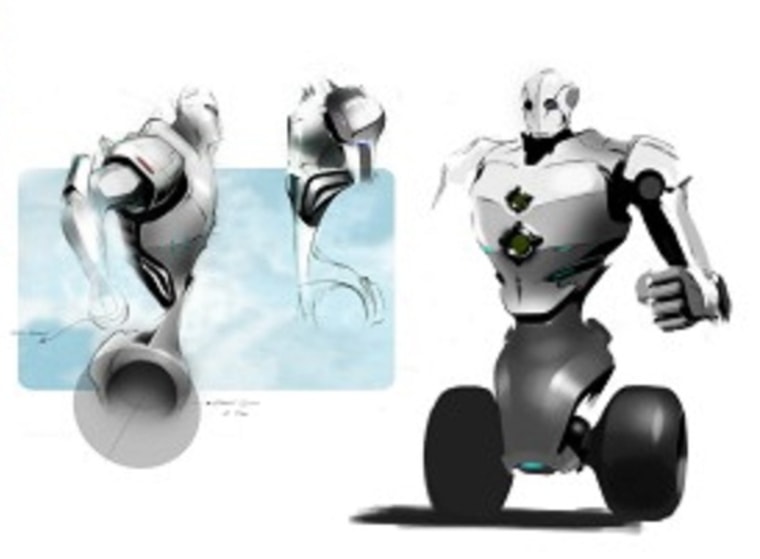
A robot with a badge may soon patrol city streets, write parking tickets and Taser criminals, but don’t worry: these robo-cops will have the smarts, eyes and ears of trained police officers at the controls.
"This will be operated remotely by another person. The robot is not going to go and randomly shoot and make the mistake of hitting the wrong person," Nagarajan Prabakar, a computer scientist at Florida International University, told NBC News on Tuesday.
The concept combines robotics and telepresence technologies to give disabled law enforcement officials and military veterans an opportunity to serve the public.
The researchers are using two custom-built war-fighting robots from the Institute for Human Machine Cognition valued at nearly $500,000 to help design the robo-cop prototype.
The project was made possible by a $20,000 gift to the university from Jeremy Robins, a lieutenant commander in the U.S. Navy Reserves,who wanted to give disabled veterans a chance to reconnect with the workforce.
The telepresence technology will allow real-time two way communication through video and video and an intuitive interface between the officer and robot. For example, when the officer turns to the left, so will the robot.
In its first iteration, the robot will move on wheels, perform surveillance of city streets and communicate with people such as disoriented tourists or a criminal trying to pick a lock.
"Many people are interested in Robocop, [from] the movie, with hands and walking like an actual cop, but that bipedal robot is very difficult to make," Jong-Hoon Kim, director of the university's Discovery Lab, said.
The team aims to have a prototype by the end of this year and to conduct its first field tests in fall 2013. Design challenges include understanding the limits of a two-wheeled robot (chasing criminals up stairs, for example, isn't going to happen) and battery power.
Future versions are likely to include an arm and gripper that can, for instance, place a parking ticket on a window shield. A weapon such as a taser could be built into the robot's body.
But, again, these robots are operated remotely by humans, Prabakar emphasized.
"They may be disabled," he said, "but they can monitor the situation and they can make the choice of what operation to be performed."
– via Discovery News
John Roach is a contributing writer for NBC News Digital. To learn more about him, check out his website. For more of our Future of Technology series, watch the featured video below.